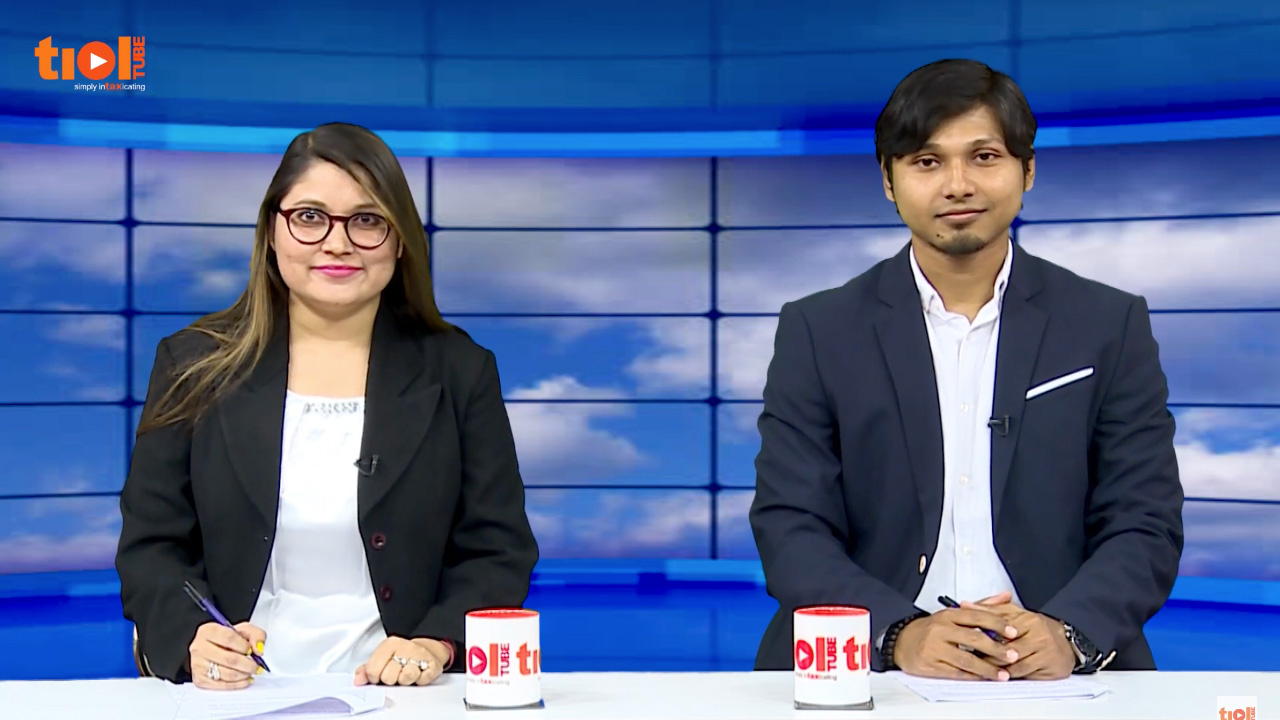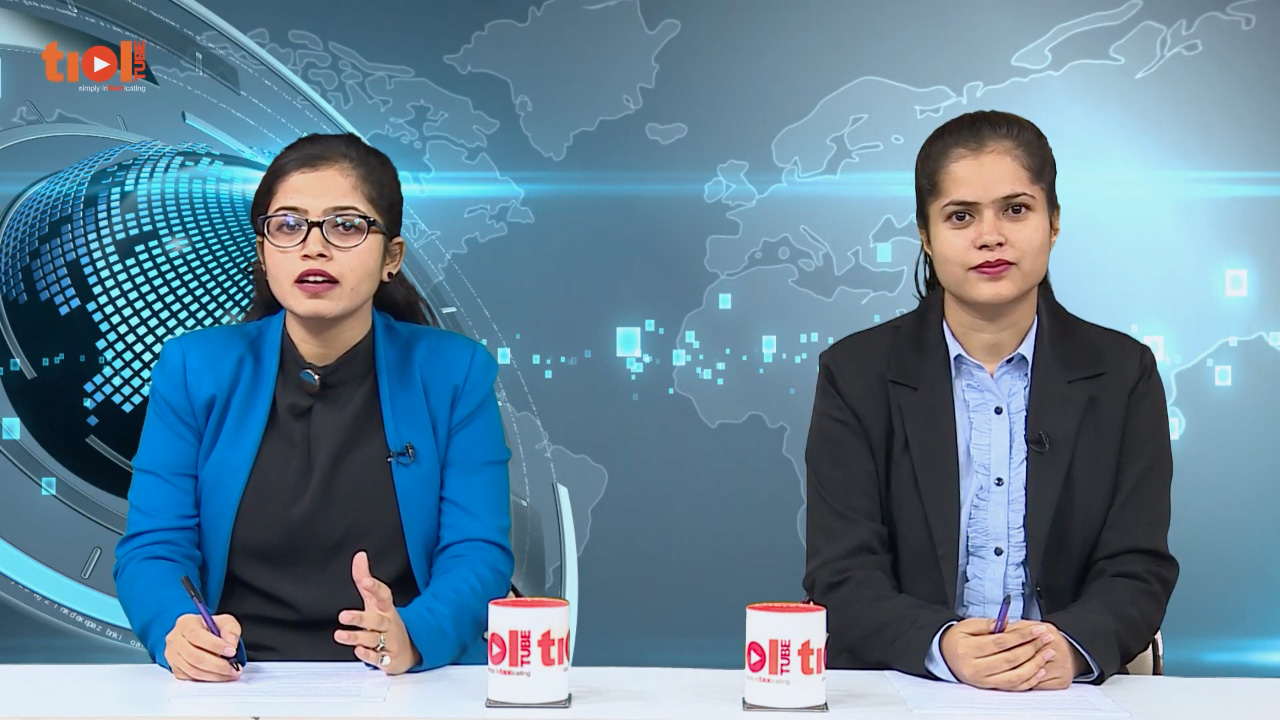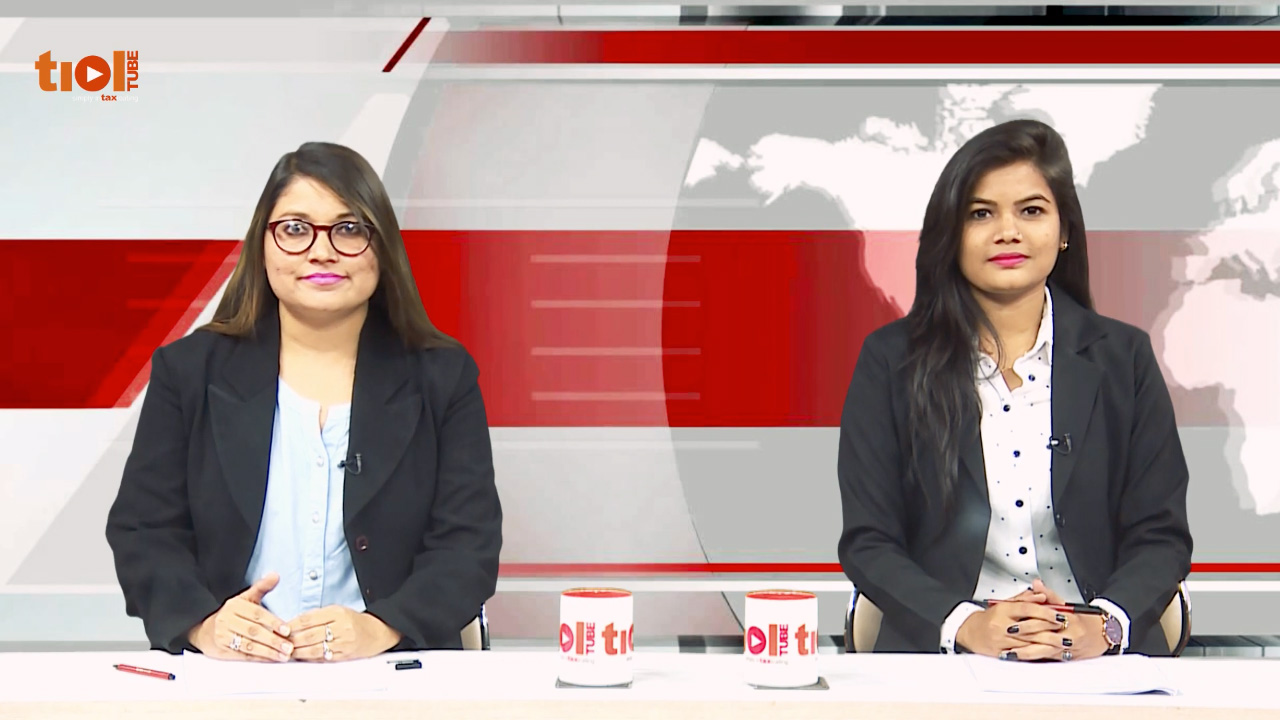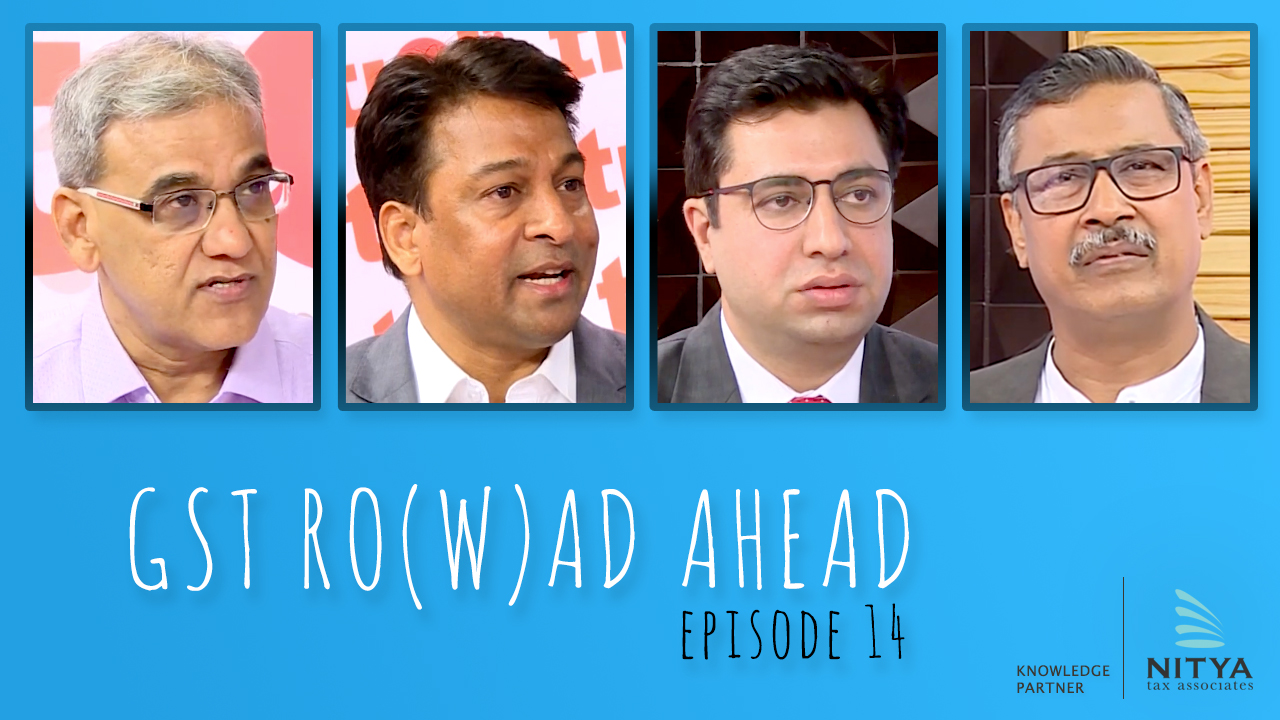|
SERVICE TAX
2019-TIOL-2932-CESTAT-KOL
Tata Steel Ltd Vs CCE & ST
ST - The assessee had provided "Commissioning and Installation" and "Maintenance or repair services" without payment of Service Tax - During check, the assessee appeared to have taken input/ service credit for providing above services - The Adjudicating Authority considering the explanation, the contract entered into between the assessee and the Tata Steels and the Statements recorded held that the assessee was an independent service provider and consequently, the receipt of service by Tata Steels Ltd. was liable to Service Tax which is not a service rendered to the self and thus confirmed the demands - For pleading that there was no service recipient rather service is for self, no documentary evidence is furnished for the satisfaction of either the Adjudicating Authority or before Tribunal - The assessee has failed to prove that it is the case of 'Self Service' but the Revenue has clearly established that there exists service, there is a service provider, there is also a service recipient; and for which the payment has been made - It is a matter of record that the Revenue has come to know of the facts only during the course of checking of records and not from an independent source and therefore, the same cannot be said to have been suppressed with an intention to evade tax and consequently, the demand cannot be raised beyond of the Normal period - There is no specific allegation of suppression or fraud to justify invoking larger period of limitation - Therefore the demand in so far as the normal period of limitation alone can be sustained - Matter is remanded back to the file of the Adjudicating Authority for working out for liability, if any, for the normal period alone: CESTAT
- Appeal partly allowed: KOLKATA CESTAT
2019-TIOL-2931-CESTAT-BANG
JSW Steels Ltd Vs CCE, C & ST
ST - The assessee-company manufactures HR Coils/Sheets/Plates falling under Chapter 72 of CETA 1985 and availed Cenvat credit on inputs goods, services and capital goods used in relation to manufacture of the final product - The assessee also availed credit of service tax paid on transportation of goods from its factory/depot to the port of shipment - The assessee regularly filed returns showing details of credit availed on the service of goods transport by road from its factory to the port of shipment, based on which the Revenue sought details regarding availment of credit of service tax paid on outward transportation - The assessee provided the requisite details - SCN was issued raising duty demand with interest & penalties - On adjudication, the service tax credit availed on transportation of goods was disallowed on grounds that cenvat credit on outward transportation did not fall within the definition of input service u/r 2(l) of CCR 2004 and that the place of removal would be the factory or deport except in cases of export - Hence the present appeal.
Held - The assessee is entitled to cenvat credit of service tax paid on outward transportation of goods from the place of removal upto March 31, 2008, considering the decision of the Apex Court in Commr. of Cus. C.Ex. & ST, Guntur Vs. Andhra Sugars Ltd. as well as the decision of the High Court of Karnataka in CCE Vs. ABB Ltd. - In such case, the court had allowed the credit of service tax availed on transportation of goods upto the customer's premises - Hence the credit availed by the assessee upto 31.03.2008 is allowed - The demand raised to such extent is quashed - Regarding the credit of service tax paid on transportation of goods upto the customer's premises after 01.04.2008, considering the decision in Bata India Limited as well as the mandate of Board Circular No. 1065/4/2018-CX dated 08.06.2018, the matter warrants remand to verify factual aspects such as whether the sale is on FOR basis, whether the freight is an integral part of the sale price and whether Customs duty paid on the value inclusive of freight amount: CESTAT
- Assessee's appeal partly allowed: BANGALORE CESTAT
2019-TIOL-2930-CESTAT-ALL
Uttam Toyota Vs CCE
ST - The appeals are directed against impugned order confirming the demand of service tax on certain services and disallowing Cenvat Credit on certain input services - As regards to admissibility of cenvat credit on various input services, one is Repair and maintenance service, the assessee is entitled to avail Cenvat Credit of service tax paid on repair and maintenance service - With regard to credit availed on pollution equipment procured from M/s AVL Pvt. Ltd., the only reason why this Cenvat Credit been denied to assessee is that it was not contested in reply to SCN and the invoices had also not been submitted - This is apparently incorrect because not only had the assessee contested this issue but had also enclosed the invoices - The procurement of pollution equipment purchased by assessee is essential for provision of output service and therefore, the assessee is entitled to take the credit - With regard to courier agency services, the Adjudicating Authority could not have denied credit only for the reason that the invoices issued by service providers did not contain the registration number - With regard to Mobile Phone Services, the Mobile Phone Service has been provided by assessee to its employees - The assessee is clearly entitled to avail credit for mobile phones since the mobile phones were provided by assessee and payment of the bills was also made by assessee - As regard to inclusion of value of spare parts in the cross value, when spare parts are sold while providing "Authorised Service Station Service", a sale tax place and VAT is charged by assessee - The Department, therefore, cannot levy service tax on the value of the spare parts - In fact, in assessee's own appeal decided on 27 December 2018, the Bench clearly observed that service tax cannot be levied on the value of spare parts - As regard to amount received under warranty claims is not leviable to service tax, this issue stands cover in favour of assessee in the earlier appeal filed by assessee which was decided on 27 December 2018 after placing reliance on the Circular dated 23 August 2007 - The leviability of service tax on this head, therefore, has to be set aside - As regards to leviability of service tax on commission received from banks, this issue been decided in favour of assessee in its own appeal decided on 27 December 2018, but even otherwise a demand cannot be confirmed under a category different from that proposed in the SCN - As regard to Interest and penalty, as the demand mentioned have been set aside, the issue of charging interest or penalty does not arise - The impugned orders are, accordingly, set aside: CESTAT
- Appeals allowed: ALLAHABAD CESTAT
CENTRAL EXCISE
2019-TIOL-2929-CESTAT-MUM
Jubilant Life Sciences Ltd Vs CCE
CX - The assessee functioned as a 100% EoU till 2011 and subsequently opted to become a DTA unit, whereupon de-bonding took place in terms of the letter issued by the Development Commissioner, SEEPZ, Mumbai - On the date of de-bonding, the assessee had some balance amount of cenvat credit - It also had utilized credit for clearances made between 8.12.2011 to 14.12.2011 - SCN was issued during the relevant period, alleging that the credit lying in balance as on the date of de-bonding had lapsed - Hence the SCN proposed recovery of balance amount of credit and credit utilized in clearance of finished goods with interest & penalty - On adjudication, such duty demand with interest and penalty was confirmed - Hence the present appeal.
Held - The issue at hand is whether the credit lying in balance in the books of accounts of the 100% EoU, as on date of de-bonding, can be transferred to the DTA unit - The issue at hand stands settled in various judgments and it has consistently been held that credit lying in balance as on date of de-bonding of 100% EoU and conversion to DTA unit, could be transferred to the DTA unit and be utilized by such unit - In light of the same, the O-i-O in the present case merits being quashed: CESTAT
- Assessee's appeal allowed: MUMBAI CESTAT
2019-TIOL-2928-CESTAT-HYD
Deccan Cements Ltd Vs CCT
CX - The assessee have taken Cenvat credit of Clean Energy Cess, which they paid on the coal imported by them for use in their factory - It is the case of assessee that they are entitled to the Cenvat credit on Clean Energy Cess paid by them while it is the case of the revenue that no Cenvat credit can be granted for the Clean Energy Cess as it is not covered under Rule 3 of CCR, 2004 - SCNs have been issued proposing recovery of allegedly wrongly availed Cenvat credit along with interest and penalties have been imposed - The Member (T) observed that it is, now a well settled legal position laid down that fiscal statutes must be interpreted strictly as per the letter of word and not the spirit of the law, ignoring any amount of hardship and eschewing any equity in taxation - However, in the event of ambiguity in taxation liability statute, the benefit should go to the assessee - From a plain reading of Rule 3 of CCR, 2004, Tribunal do not find any ambiguity - If the intention was to allow credit of all forms of duties of excise and cesses, the Rule would have said so - Instead, it only listed some forms of duties of excise, additional duties of customs and cesses on which credit will be admissible and Clean Energy Cess is not one of them - The assessee is not entitled to Cenvat credit under Rule 3 of CCR, 2004 - Insofar as the interest on Cenvat credit taken is concerned, wherever Cenvat credit has been availed but not utilized, the interest need not be paid but it has to be paid in cases where the Cenvat credit has been taken as well as utilized as has been held by High Court of Karnataka in the case of Bill Forge Pvt Ltd - 2011-TIOL-799-HC-KAR-CX - As far as imposition of penalties are concerned, this is an interpretational issue and it is possible for the assessees to have held a genuine belief that they are entitled for Cenvat credit of Clean Energy Cess and hence have taken Cenvat credit - Therefore, the imposition of penalty under Rule 15 of CCR, 2004 is not justified - Member (J) agrees with the conclusion arrived by my Member (T) as to the issue whether credit is eligible on Clean Energy Cess paid by assessee, however, do not concur with the entire discussions recorded by Member (T) for reaching such conclusion - Therefore recorded a separate order - Clean Energy Cess is levied as duty of excise on goods specified in Tenth Schedule - Thus, it is a cess in the nature of excise duty on 'production' of coal and is collected at the time of removal of raw coal, raw ignite and raw peat from the mines of factory - The intention of levy of this cess is for the purpose of financing and promoting clean energy initiatives, fund the research in area of clean energy or for any other purposes relating thereto - It is specifically stated in notfn that this cess has to be paid by cash - The liability to pay cess cannot be discharged using CENVAT credit - In respect of Clean Energy Cess, only certain provisions of Central Excise Act are made applicable - The CENVAT Credit Rules have been made on exercise of powers conferred by Section 37 of CEA, 1944 - However, Section 37 has not been made applicable to Clean Energy Cess - Thus, it can be seen that there was no intention to allow credit on the clean energy cess levied - For these reasons, Member (J) concur with the conclusion arrived by Member (T) that credit on Clean Energy Cess is not eligible - Further, wherever refund of unutilized credit on cess is sought, the refund is not eligible since the credit itself is wrongly availed and ineligible: CESTAT
- Appeals partly allowed: HYDERABAD CESTAT
2019-TIOL-2927-CESTAT-HYD
Mylan Laboratories Ltd Vs CCT
CX - The issue which falls for consideration is, whether the assessee is entitled to take Cenvat Credit on Input Service Distributor (ISD) invoice received from their Head Office which was issued after 01.09.2014 beyond the period of six months from the date of the input invoices - A plain reading of Rule 4(7) of CCR, 2004 shows that it imposed restrictions on availment of Cenvat Credit by manufacturer or the provider of output service - It does not impose any restriction on availment of Cenvat Credit by an ISD for further distribution - If one were to apply principles of equity the same law should apply to the ISD also but in fiscal statutes there is no rule for equity and the law should be interpreted as they are written - It is not in dispute that as manufacturer, assessee have availed Cenvat Credit within six months from the date on which they received the ISD invoices which are one of the documents specified in Rule 9(1) - The Head Office of assessee who are registered as ISD have availed Cenvat Credit beyond the period of six months - No restriction has been placed on availment of Cenvat Credit by ISD during the relevant period under this proviso - Assessee is entitled to avail Cenvat Credit and therefore, the impugned order is unsustainable and is set aside: CESTAT
- Appeal allowed: HYDERABAD CESTAT
CUSTOMS
2019-TIOL-2373-HC-KERALA-CUS
Joy Alukkas India Pvt Ltd Vs CC
Cus - The petitioner is engaged in business of retail sale of Gold and Diamond jewellery and is aggrieved by impugned order that is passed by the respondents confiscating the 'Uncut Diamonds' that were imported by them under Section 111 (d) of Customs Act, 1962 - By the same order, the petitioner was granted an option to redeem the goods on payment of a fine of Rs.10,00,000/- for the purpose of re-export within 30 days along with the Kimberly Process Certificate duly issued by GJEPC - A further penalty of Rs.1,00,000/- was also imposed on the petitioner in terms of Section 112 (a) of the Customs Act - Without prejudice to the right of the petitioner to impugn order, to the extent it imposes a penalty and redemption fine in lieu of confiscation on petitioner, before the appellate authority in appropriate proceedings, the petitioner is permitted to re-export the imported diamonds on the strength of the Kimberly Process Certificate now produced by him and subject to his paying the penalty and redemption fine under protest before the respondents - It is made clear that, on the petitioner paying the redemption fine and penalty, the respondent shall permit the petitioner to re-export the imported diamonds without any further delay: HC
- Writ petition disposed of: KERALA HIGH COURT | |








